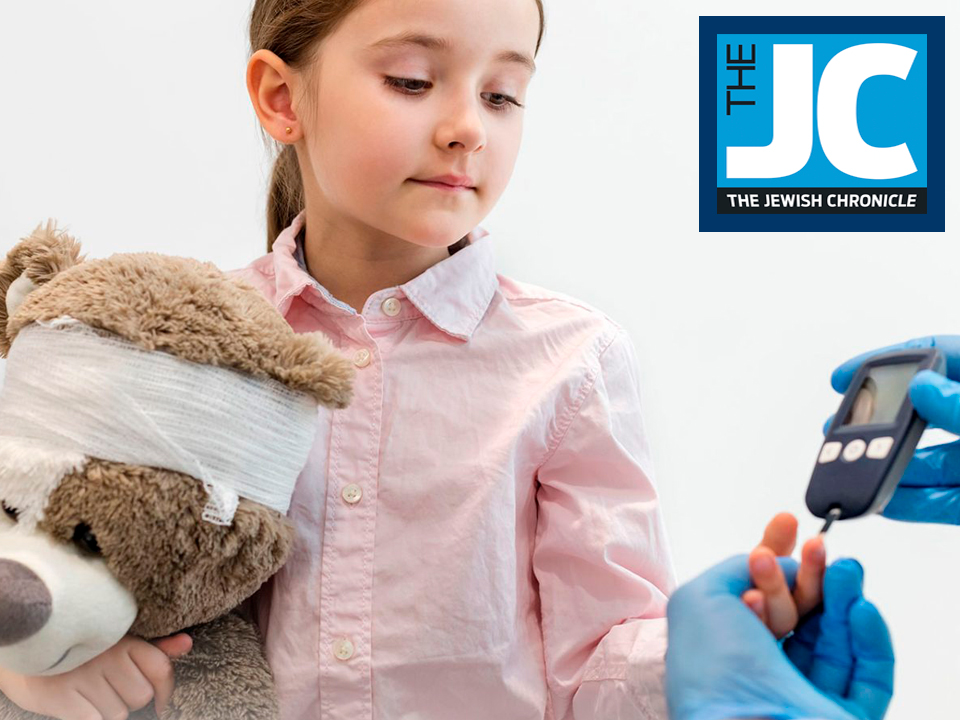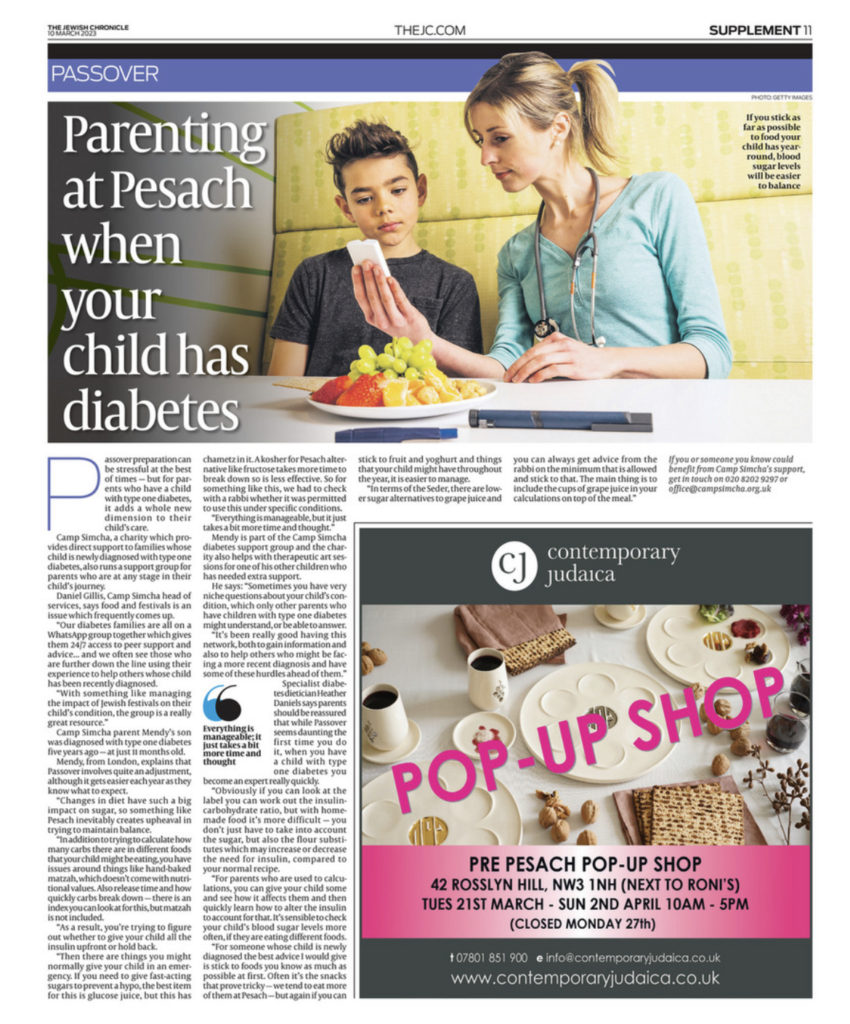


Thanks to the JC for featuring this piece.
Passover preparation can be stressful at the best of times – but for parents who have a child with Type 1 Diabetes, it adds a whole new dimension to their child’s care.
Charity Camp Simcha, which provides direct support to families whose child is newly diagnosed with Type 1 Diabetes, also runs a support group for parents who are at any stage in their child’s journey.
Camp Simcha Head of Services Daniel Gillis says food and festivals is an issue which frequently comes up.
“Our Diabetes families are all on a WhatsApp group together which gives them 24/7 access to peer support and advice. It’s a great resource and we often see those who are further down the line using their experience to help others whose child has been recently diagnosed.
“With something like managing the impact of Jewish festivals on their child’s condition, the group is a really great resource.”
Camp Simcha parent Mendy’s son was diagnosed with Type 1 Diabetes five years ago – at just 11 months old.
Mendy, from London, explains that Passover involves quite an adjustment, although it gets easier each year as they know what to expect.
“Changes in diet have such a big impact on sugar, so something like Pesach inevitably creates upheaval in trying to maintain balance.
“In addition to trying to calculate how many carbs there are in different foods that your child might be eating, you have issues around things like hand- baked matzah, which doesn’t come with nutritional values. Also release time and how quickly carbs break down – there is an index you can look at for this, but matzah is not included.
“As a result, you’re trying to figure out whether to give your child all the insulin upfront or hold back.
“Then there are things you might normally give your child in an emergency. If you need to give fast acting sugars to prevent a hypo, the best item for this is glucose juice, but this has chametz in it. A kosher for Pesach alternative like fructose takes more time to break down so is less effective. So for something like this, we had to check with Rabbi whether it was permitted to use this under specific conditions.
“Everything is manageable, but it just takes a bit more time and thought.”
Mendy is part of the Camp Simcha Diabetes support group – and the charity also helps with therapeutic art sessions for one of his other children who has needed extra support.
He says: “Sometimes you have very niche questions about your child’s condition, which only other parents who have children with Type 1 Diabetes might understand, or be able to answer.
“It’s been really good having this network, both to gain information and also to help others who might be facing a more recent diagnosis and have some of these hurdles ahead of them.”
Specialist Diabetes dietician Heather Daniels says parents should be reassured that while Passover seems very daunting the first time you do it, when you have a child with Type 1 Diabetes you become an expert really quickly.
“Obviously if you can look at the label you can work out the insulin-carbohydrate ratio, but with home-made food it’s more difficult – you don’t just have to take into account the sugar, but also the flour substitutes which may increase or decrease the need for insulin, compared to your normal recipe.
“For parents who are used to calculations, you can give your child some and see how it affects them and then quickly learn how to alter the insulin to account for that. It’s sensible to check your child’s blood sugar levels more often, if they are eating different foods.
“For someone whose child is newly diagnosed the best advice I would give is stick to foods you know as much as possible at first. Often it’s the snacks that prove tricky – we tend to eat more of them at Pesach – but again if you can stick to fruit and yoghurt and things that your child might have throughout the year it is easier to manage.
“In terms of the Seder, there are lower sugar alternatives to grape juice and you can always get advice from the Rabbi on the minimum that is allowed and stick to that. The main thing is to include the cups of grape juice in your calculations on top of the meal.”
If you or someone you know could benefit from Camp Simcha’s support get in touch on 020 8202 9297 or office@campsimcha.org.uk.
